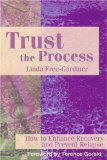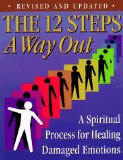

MRP Site Navigation
MRP Home Page
MN 12 Step Groups
MN Treatment Centers
National AA Intergroups
National NA Intergroups
National Al-Anon Intergroups
Other Recovery Groups
Online Meetings
AA History
Recovery Events
Links
Alcoholism
Links
Codependency Links
Commercial
Sites
Drug
Addiction Links
Eating Disorder Links
Gambling
Addiction Links
Gay
& Lesbian Links
Mental & Emotional Health
Religion
& Spiritual Links
Sexual Addiction Links
Women's Issues
Bookstore
Reading
Room
AA Literature
Recovery Articles
Personal
Stories
People In Recovery
Graphics
Supporting the Minnesota Recovery Page
Contact Us

Trust the Process:
How to Enhance Recovery
and Prevent Relapse
Slips
|
Do alcoholics
suffer from "Alcoholic Behavior" or are they simply The mystery of slips is not as deep as it may appear. While it does seem odd that an alcoholic who has restored himself to a dignified place among his fellow men, and continued dry for years, should suddenly throw all his happiness overboard and find himself in mortal peril of drowning in liquor - often the reason is very simple. People are inclined to say, "There is something peculiar about alcoholics. They may seem to be well, yet at any moment they may turn back to their old ways. You can never be sure. "This is largely twaddle. The alcoholic is a sick person. Under the technique of Alcoholics Anonymous he gets well, that is to say his disease is arrested. There is nothing unpredictable about him any more than there is anything weird about a person who has arrested diabetes. Let's get it clear, once and for all, that alcoholics are human beings just like other human beings - then we can safeguard ourselves intelligently against most of the slips. Both in professional and lay circles there is a tendency to label everything that an alcoholic may do as "alcoholic behavior." The truth is it is simply human nature. It is very wrong to consider many of the personality traits observed in liquor addicts as peculiar to the alcoholic. Emotional and mental quirks are classified as symptoms of alcoholism merely because alcoholics have them, yet these same quirks can be found among non-alcoholics also. Actually they are symptoms of mankind; ORDINARY PEOPLE. Of course, the alcoholic himself tends to think of himself as different, someone special, with unique tendencies and reactions. Many psychiatrists, doctors, and therapists carry the same idea to extremes in their analyses and treatment of alcoholics. Sometimes they make a complicated mystery of a condition which is found in all human beings, whether they drink whiskey or buttermilk. To be sure, alcoholism, like every other disease, does manifest itself in some unique ways. It does have a number of baffling peculiarities which differ from all other diseases. At the same time, many of the symptoms and much of the behavior of alcoholism are closely paralleled and even duplicated in other diseases. The alcoholic "slip", as it is known in Alcoholics Anonymous, furnishes a perfect example of how human nature can be mistaken for alcoholic behavior.
The "slip is a relapse! It is a relapse that occurs after the alcoholic has stopped drinking and started on the AA program of recovery. "Slips" usually occur in the early stages of the alcoholic's AA indoctrination, before he has had time to learn enough of the AA technique and AA philosophy to give him solid footing. But "slips" may also occur after the alcoholic has been a member of AA for many months, or even after several years, and it is in this kind, above all, that one finds a marked similarity between the alcoholic's behavior and "normal" victims of other diseases. No one is startled by the fact that relapses are not uncommon among arrested tubercular patients. But there is a startling fact - the cause is often the same as the cause which leads to "slips" for the alcoholic. It happens this way: When a tubercular patient recovers sufficiently to be released from the sanitarium, the doctor gives him careful directions for the way he is to live when he gets home. He must be in bed every night by, say, eight o'clock. He must drink plenty of milk. He must refrain from smoking. He must obey other stringent rules. For the first several months, perhaps for several years, the patient follows directions. But as his strength increases and he feels fully recovered, he becomes slack. There may come the night when he decides he can stay up until ten o'clock. When he does this, nothing untoward happens. The next day he still feels good. He does it again. Soon he is disregarding the directions given him when he left the sanitarium. Eventually he has a relapse.
The same tragedy can be found in cardiac cases. After the heart attack, the patient is put on a strict rest schedule. Frightened, he naturally follows directions obediently for a long time. He, too, goes to bed early, avoids exercise such as walking up stairs, quits smoking, and leads a Spartan life. Eventually, though, there comes a day after he had been feeling good for months, or several years, and has recovered from his fright. If the elevator is out of repair one day, he walks up three flights of stairs. Or he decides to go to a party - or do just a little smoking, or take a cocktail or two. If no serious after-affects follow the first departure from the rigorous schedule prescribed, he may try it again until he suffers a relapse. In both cardiac and tubercular cases, the acts which led to the relapse were preceded by wrong thinking. The patient in each case rationalized himself out of a sense of his own perilous reality. He deliberately turned away from his own knowledge of the fact he had been the victim of a serious disease. He grew over-confident. He decided he didn't have to follow directions. Now that is precisely what happens with the alcoholic - the arrested alcoholic, or the alcoholic in AA who has had a "slip". Obviously he decides again to take a drink some time before he actually takes it. He starts thinking wrong before he actually embarks on the course leading to a "slip".
There is no more reason to charge the "slip" to alcoholic behavior than there is to lay a tubercular relapse to tubercular behavior or a second heart attack to cardiac behavior. The alcoholic "slip" is not a symptom of a psychotic condition. There is nothing "screwy" about it at all. The patient didn't follow directions. And that's human nature! It's life! It's happening all the time, not merely among alcoholics, but among all kinds of people. The preventive is plain. The patient must have full knowledge of his condition, keep in mind the facts of his case and the nature of his disease, and follow orders. For the alcoholic, AA offers some directions. A vital factor, or ingredient, of the preventive, especially for the alcoholic, is sustained emotion. The alcoholic who learns some of the technique or the mechanics of AA but misses the philosophy or the spirit, may get tired of following directions - not because he is alcoholic but because he is human. Rules and regulations irk almost anyone, because they are restraining, prohibitive, negative. The philosophy of AA however, is positive and provides ample sustained emotion - a sustained desire to follow directions voluntarily.
In any event, the psychology of the alcoholic is not as different as some people try to make it. The alcoholic has problems peculiar to him perhaps, in that he has been put on the defensive and consequently has developed nervous frustrations. But in many instances there is no more reason to be talking about the "alcoholic mind" than there is to try to describe something called the "cardiac mind", or the "TB mind". I think we will help the alcoholic more if we can first recognize that he is primarily a human being - afflicted with human nature. |
A word about the advertising:
In an effort to be self-supporting, the Minnesota Recovery Page includes a limited amount of advertising. The MRP makes a small amount of money when you click on the links below and/or purchase an item after clicking through a link.

A Relapse Prevention Workbook for Women

A Hole In The Sidewalk
The Recovering Person's Guide to Relapse Prevention

Relapse Prevention Workbook, Short-Term

Third and Seventh Step
Prayer Mug

Staying Sober Tips for Working..

Staying Sober Tips for Working..

Coping with Personal and Social High-Risk Factors Pamphlet
© 1996-2009 Minnesota
Recovery Page
In an effort to be self-supporting, the Minnesota Recovery Page includes a limited amount of advertising. The MRP makes a small amount of money when you click on the links below and/or purchase an item after clicking through a link.





